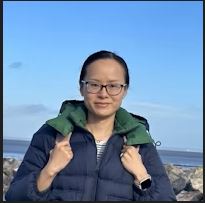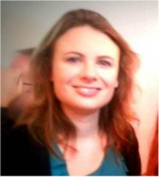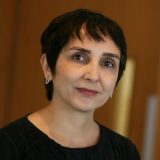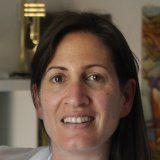Lu’s research focuses on simulating and assessing extreme hydrometeorological events like floods and heat waves, particularly in relation to climate change. Lu employs satellite remote sensing, environmental modelling, and machine learning to analyse urban and watershed contexts.
Peter Melville-Shreeve
Dr Peter Melville-Shreeve has worked in consultancy, startups and academic roles over the last decade. He works closely with the Chartered Institution of Water and Environmental Management’s (CIWEM’s) policy team to support sustainable water management systems and chair’s CIWEM’s Water Reuse Task & Finishing Group. Much of Peter’s early research focusses on rainwater management systems and the need for dual purpose designs – which can mitigate droughts and floods. His thesis highlighted the opportunities for Internet of Things technologies to be harnessed to reduce water demand AND manage stormwater flood risk. He consequently founded and exited a technology business which developed analytics and control systems to enable such technologies to be implemented at a range of scales.
Gemma coxon
I am a Lecturer in Hydrology within the Hydrology Group in the School of Geographical Sciences. My research focusses on understanding and predicting hydro-climatic extremes (floods and droughts) in changing environments. My expertise centres on building, applying and evaluating hydrological models for the improved simulation of water systems from local to continental scales across large samples of catchments.
Eduarda santos
Eduarda is an environmental biologist investigating reproductive development and function and the susceptibility of these processes to disruption by environmental stressors. Her research focuses on fish and has ranged from investigating the endocrine control of reproduction to addressing the population level effects of chemical exposure for wild fish, using systems biology strategies.
Guangtao Fu
Guangtao’s research is focused on developing and applying new computer models, data analytics and artificial intelligence tools to tackle urban water challenges in water supply resilience, network leakage, flood risk, urban stormwater and wastewater management.
Raziyeh Farmani
Raziyeh specialises in urban water systems modelling, water resources management and asset management and has expertise in multi-objective optimisation of water networks. Her research interests covers evolutionary optimisation, artificial intelligence and data mining.
Rafael Rosolem
Rafael is an ecohydrometeorologist with an interest in understanding the processes and interactions that happen in the soil-vegetation-atmosphere domain, in particular how soil moisture and evapotranspiration are interconnected. He combines hydrological and land models with field experiments available from different regions facing environmental pressures such as droughts and deforestation. His current interests include improving predictions of extreme hydrometeorological events in developing countries (Africa and South America) where data availability is limited.
Slobodan Djordjevic
Slobodan researches the development and application of advanced methodologies and software tools for water management. These include: drainage and floods simulation, impacts of flooding, effects on human health and impacts on road transportation, resilience to diverse extreme weather events in the context of climate change, tidal energy extraction, water quality modelling, river and coastal engineering, water-food-energy nexus, cascading effects between water, waste, energy, transportation and other infrastructure systems, nature-based solutions, and drought risk management.
Albert Chen
Albert’s research focuses on water and human environment systems. Particular focus is on: hydraulic modelling, urban drainage, flood forecasting, innovation technology applications, water-food-energy-ecosystems nexus, climate change impact on critical infrastructure, prediction of water-borne disease, hazard impact and cascading effects assessment, and mitigation and resilience strategies.
Michael Singer
Michael’s research covers ecohydrology; drought and water scarcity; forest health; stochastic hydrology; climate change; floods; Sediment transport; hydrology and geomorphology.
Katerina Michaelides
Katerina’s research focuses on rainfall-driven processes at the Earth’s surface, including overland flow generation, sediment transport, erosion and biogeochemical fluxes with a specific focus on dryland basins where water and nutrients are greatly limited. Current projects include ‘Drought Resistance in East African Dryland Regions’ and ‘Re-work of Mobile Phone App Development for Drought Adaptation in Drylands’.











